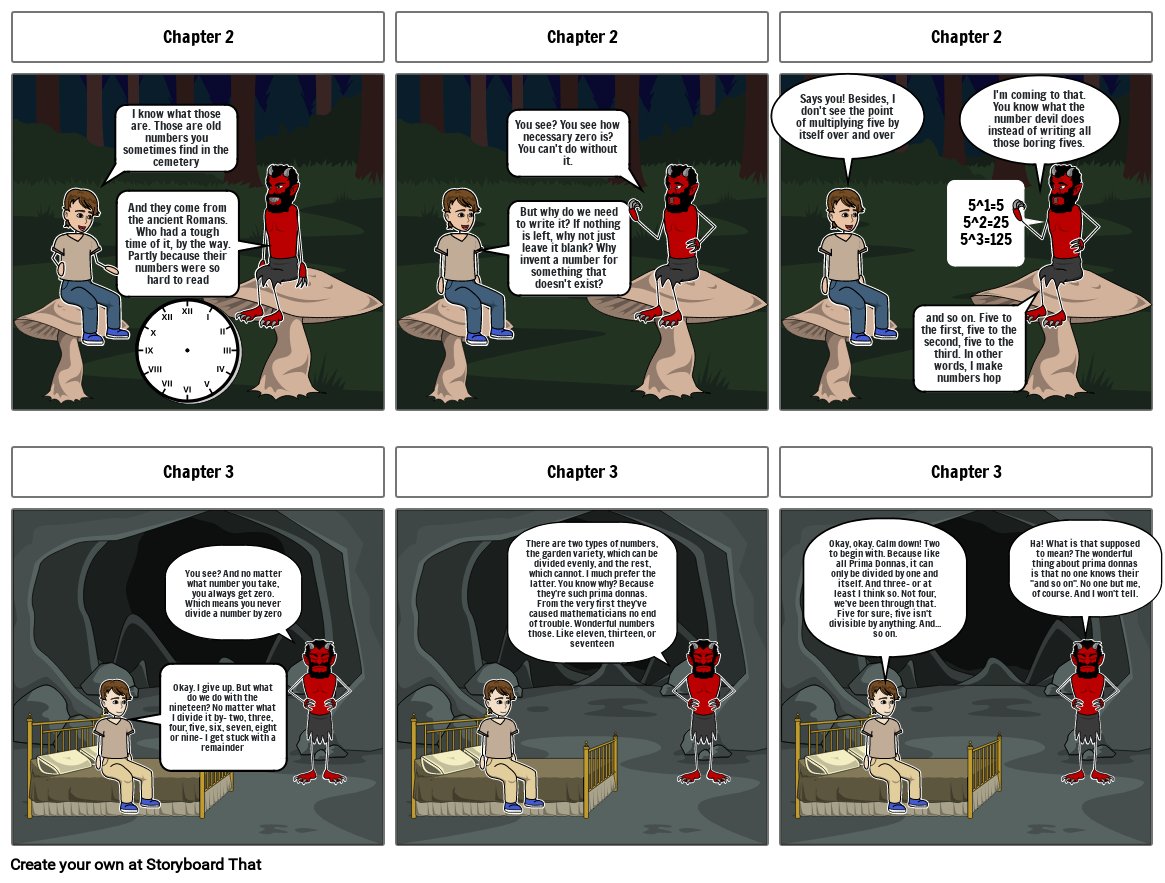The Number Devil

Kuvakäsikirjoitus Teksti
- Chapter 2
- I know what those are. Those are old numbers you sometimes find in the cemetery
- And they come from the ancient Romans. Who had a tough time of it, by the way. Partly because their numbers were so hard to read
- Chapter 2
- But why do we need to write it? If nothing is left, why not just leave it blank? Why invent a number for something that doesn't exist?
- You see? You see how necessary zero is? You can't do without it.
- Says you! Besides, I don't see the point of multiplying five by itself over and over
- Chapter 2
- and so on. Five to the first, five to the second, five to the third. In other words, I make numbers hop
- I'm coming to that. You know what the number devil does instead of writing all those boring fives.
- 5^1=55^2=255^3=125
- Chapter 3
- Okay. I give up. But what do we do with the nineteen? No matter what I divide it by- two, three, four, five, six, seven, eight or nine- I get stuck with a remainder
- You see? And no matter what number you take, you always get zero. Which means you never divide a number by zero
- Chapter 3
- There are two types of numbers, the garden variety, which can be divided evenly, and the rest, which cannot. I much prefer the latter. You know why? Because they're such prima donnas. From the very first they've caused mathematicians no end of trouble. Wonderful numbers those. Like eleven, thirteen, or seventeen
- Chapter 3
- Okay, okay. Calm down! Two to begin with. Because like all Prima Donnas, it can only be divided by one and itself. And three- or at least I think so. Not four, we've been through that. Five for sure; five isn't divisible by anything. And... so on.
- Ha! What is that supposed to mean? The wonderful thing about prima donnas is that no one knows their "and so on". No one but me, of course. And I won't tell.
Yli 30 miljoonaa kuvakäsikirjoitusta luotu

